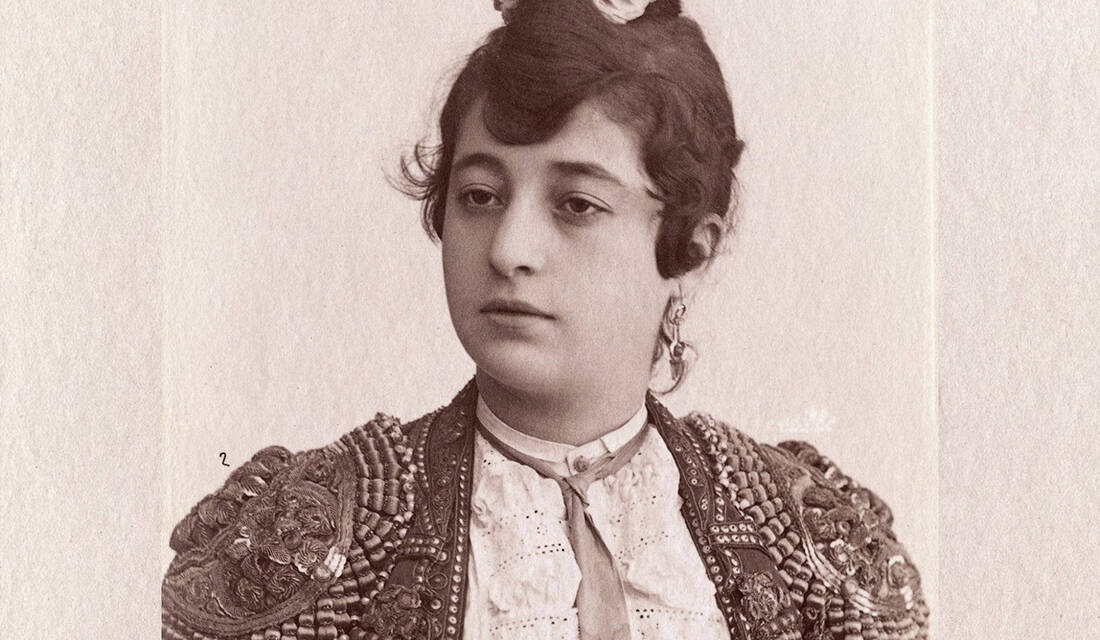Opera Holland Park (OHP) has announced details of a programme of panel events beginning on 11 March. The online and in-person discussions are designed to accompany the productions that comprise the West London-based company’s summer season.
Part of the Institut français du Royaume-Uni’s (IFRU) Women Shaping the World Festival, the first discussion asks if opera can be feminist. Opera and feminism: The trouble with Carmen brings together cultural historian Claire Lozier, opera critic Erica Jeal, director Cecilia Stinton and OHP’s Head of Communications and Insight Anna Picard to consider how Bizet’s Carmen (1875) can be viewed through a feminist lens.
The panel will examine cultural stereotyping and the troublesome trope of the femme fatale in Prosper Mérimée’s novel and its operatic adaptation. There will be live music from mezzo-soprano Clare Presland and conductor and pianist Sonia Ben Santamaria.
This event takes place on 11 March at 7pm at the Institut français du Royaume-Uni in Kensington. Tickets cost £15 and are available from IFRU.
Two years since their last Opera Holland Park event together, historian Rosamund Bartlett and conductor Lada Valešová reconvene with Anna Picard for Eugene Onegin: The letter and the gun. They will be joined by director Julia Burbach for an evening of Russian poetry, Tchaikovsky miniatures and a discussion of the classic drama of innocence and experience, Eugene Onegin (1879).
Taking place on 15 March at the Marylebone home of Bob and Elisabeth Boas, doors open at 7pm for a 7.30pm start. Tickets cost £15.
In Acts of Revenge: Introducing Margot la Rouge and Le Villi the panel will provide a whistlestop tour of Gothic horror, German folklore and the lawless backstreets of fin de siècle Paris, using this double-bill of works from Delius (1902) and Puccini (1884) respectively as a guide.
Doctor James Savage-Hanford, Professor Mererid Puw Davies, director Martin Lloyd-Evans and Paul Guinery of The Delius Trust join Anna Picard to explore the contrasting styles and soundworlds of the two operas. Topics include naturalism and the supernatural, wronged heroines, vengeful spirits in German folklore and the bohemian lifestyle and tangled relationships of Delius’s circle in Paris.
This free event takes place at the Italian Cultural Institute London, Belgravia at 7pm on 20 April. Tickets must be booked in advance due to the venue’s limited capacity.
Ahead of the UK premiere of Mark Adamo’s opera based on Louisa May Alcott’s famous novel, Little Women: Louisa May Alcott and the American opera is a transatlantic conversation on American opera, classic novels of girlhood and the lasting impact of Alcott’s story of the March sisters. Panellists include John Allison, editor of Opera magazine, Deborah Friedell, contributing editor at the London Review of Books, and director Ella Marchment.
This online discussion will be livestreamed at 6pm on 10 May. Places must be reserved in advance and it is a Pay What You Feel event, with a suggested minimum donation of £5.
The final event in the series is Laughing at the English: satire and patriotism in HMS Pinafore, a survey of satire and patriotism from Gilbert and Sullivan’s toe-tapping naval comedy to contemporary sketch writing.
The panel comprises director and singer John Savournin, WS Gilbert biographer Andrew Crowther, BBC Radio Three’s Donald MacLeod and John Crace, parliamentary sketch writer for The Guardian. They join Anna Picard to discuss matters naval, nostalgic, patriotic and satirical, in celebration of HMS Pinafore, the second co-production between Opera Holland Park and Charles Court Opera.
Another online event, it will be livestreamed at 6pm on 17 May. Access must be booked in advance and is Pay What You Feel.
All tickets can be booked via OHP’s website.
OHP revealed details of its 2022 season in late 2021. Tickets for all five productions go on general sale on 6 April. Tickets and full cast details are on OHP’s website.
Image
Part of Opera Holland Park’s programme of preseason events, Opera and feminism: The trouble with Carmen will look at how Bizet’s Carmen can be viewed through a feminist lens.

